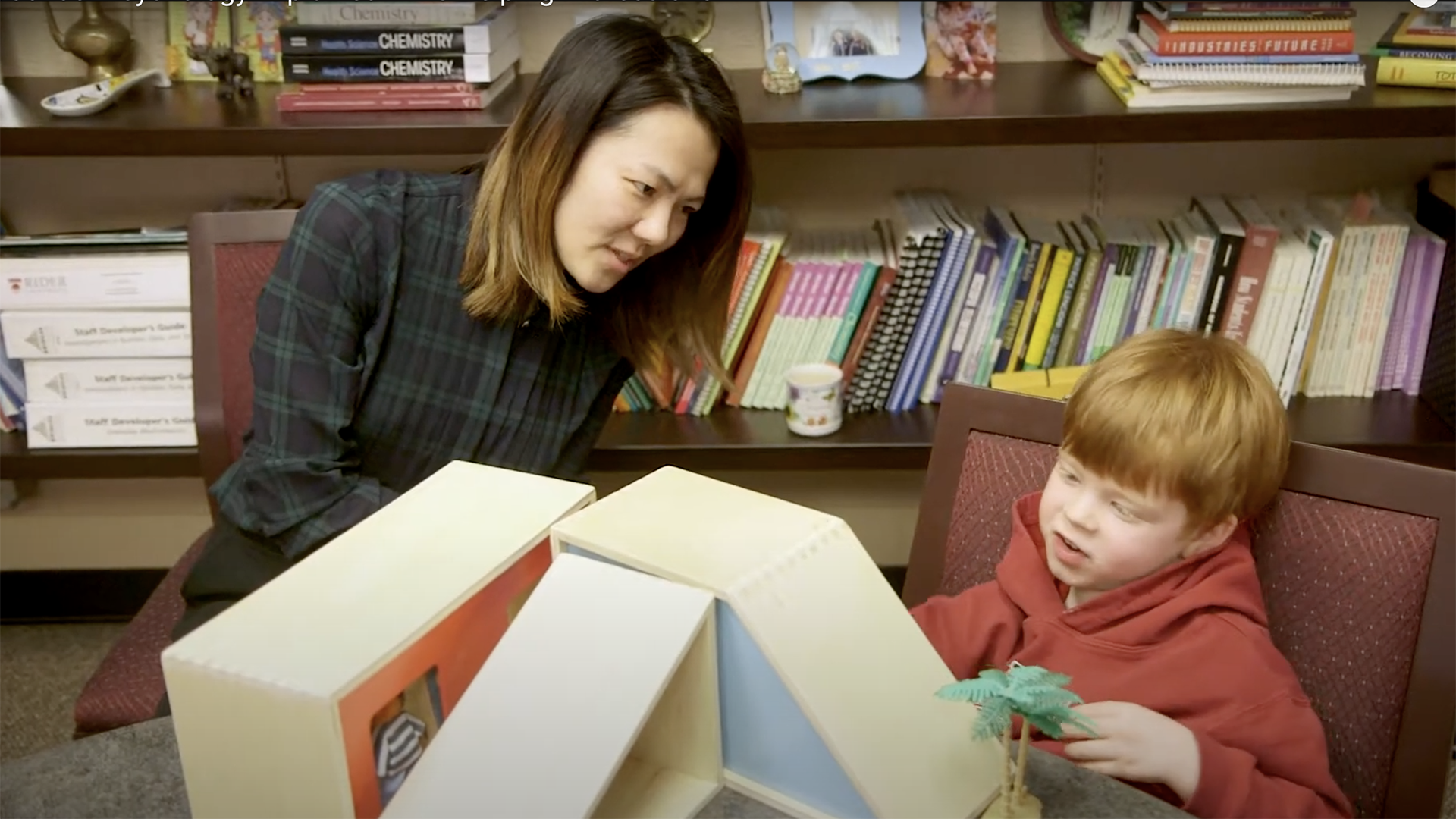Thursday, Jan 7, 2021
Leading practitioners appeared from as far away as the Middle East
by Keith Fernbach
The events of 2020 have caused a great deal of stress and anxiety for many people, and children are no exception. However, unlike adults, who can more easily communicate their feelings, children can have a difficult time expressing their emotions and receiving the help they need.
This topic was recently addressed at the New Jersey Association for Play Therapy’s (NJAPT) 2020 virtual conference, which took place on Dec. 6, 2020. Co-sponsored by Rider University’s Department of Graduate Education, Leadership, and Counseling, along with the Monmouth University’s School of Social Work, the event brought together leading practitioners from across the state and as far away as the Middle East.
Dr. Yi-Ju Cheng, an assistant professor in Rider’s College of Education and Human Services, serves as treasurer of the NJAPT and was instrumental in bringing the event to Rider. She also played a key role in ensuring that the conference ran smoothly — doing everything from overseeing technical issues to processing payments to creating post-event questions for attendees.
Dr. Christina Peterson, the chair of Rider’s Department of Graduate Education, Leadership, and Counseling, also participated, delivering an opening address to attendees at the outset of the conference.
The keynote presentation was on the topic of “Playful Cognitive Behavioral Therapy (CBT) Interventions for Children with Anxiety” and was led by Liana Lowenstein, a certified play therapist supervisor who leads training sessions around the world and has authored numerous books, including Creative CBT Interventions for Children with Anxiety.
The basic premise behind CBT is that it teaches people how to identify negative thought patterns that are having adverse effects on their behavior, and replace them with more positive or objective thoughts.
Cheng explains that play therapy can be practiced from various theoretical orientations, one of which is cognitive behavioral play therapy.
“The way CBT play therapy works is that it uses play-based activities and interventions such as games, puppets, arts and worksheets to motivate children to participate in the treatment process and to facilitate changes,” she says. “Some play-based activities are developmentally appropriate and can be fun and enjoyable for children. This approach may lead to success in facilitating skill-building and behavior changes for children.”
The topic of treating children with anxiety is particularly timely given that the emotional effects of the COVID-19 pandemic have impacted all populations, including children.
Cheng notes that she has observed an increase in the number of young people experiencing these issues. “The unknowns and uncontrollable aspects of COVID may be anxiety-provoking for not only children but also adults, and some children are also able to sense the anxiety or worry that adults carry with them,” she says.
Another COVID-related issue that was mentioned during the conference was best practices for conducting play therapy in a remote environment. This included demonstrating how activities can be modified and used for virtual sessions, as well as providing additional resources for practitioners to utilize.
“Since the pandemic started, the play therapy profession has been working hard on how to provide play therapy to children via an online format,” says Cheng. “There are some challenges, of course, such as maintaining confidentiality, safety of children, and the difficulty of ensuring that the child can stay in front of the computer. But many play therapists are trying to reach the child clients and to provide continued support as much as possible.”
Cheng, whose research is primarily focused in the area of play therapy and who volunteers play therapy-related services in schools, has also created two graduate-level courses that are offered as part of Rider’s counseling program: “Introduction to Play Therapy” (COUN 555) and “Parent-Child Play Therapy” (COUN 556).
She is hopeful that the conference will further elevate Rider as a leading institution in this emerging field. “I have been wanting to promote the play therapy courses we offer here at Rider and increase our profile in the play therapy community,” she says. “I believe that this co-sponsorship was helpful in achieving that.”

